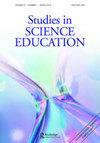机器学习在科学评估中的应用:系统综述
IF 9.9
2区 教育学
Q1 EDUCATION & EDUCATIONAL RESEARCH
引用次数: 90
摘要
摘要机器学习(ML)是一种新兴的计算机化技术,它依赖于从训练数据中“学习”而不是“指令”构建的算法,这在彻底改变科学评估方面具有巨大潜力。本研究系统地回顾了49篇关于通过三角框架进行基于ML的科学评估的文章,该框架在三个顶点上具有技术、有效性和教学特征。我们发现,与其他两个顶点相比,大多数研究都集中在有效性顶点上。现有的研究主要涉及文本识别、分类和评分,重点是构建科学的解释,并采用广泛的人机一致性措施。为了实现一致性度量,大多数研究采用了交叉验证方法,而不是自我验证或分割验证。ML允许教师在没有人为评分负担的情况下使用复杂的评估,节省了时间和成本。大多数研究使用有监督的ML,它依赖于从学生作业中提取属性,这些属性首先由人类编码,以实现自动化,而不是半监督或无监督的ML。我们发现,有24项研究明确嵌入了科学学习活动中,如科学探究和论证,以提供反馈或学习指导。这项研究确定了现有的研究差距,并建议在未来的评估研究中解决ML三角的所有三个顶点,重点是教育学和技术特征。本文章由计算机程序翻译,如有差异,请以英文原文为准。
Applying machine learning in science assessment: a systematic review
ABSTRACT Machine learning (ML) is an emergent computerised technology that relies on algorithms built by ‘learning’ from training data rather than ‘instruction’, which holds great potential to revolutionise science assessment. This study systematically reviewed 49 articles regarding ML-based science assessment through a triangle framework with technical, validity, and pedagogical features on three vertices. We found that a majority of the studies focused on the validity vertex, as compared to the other two vertices. The existing studies primarily involve text recognition, classification, and scoring with an emphasis on constructing scientific explanations, with a vast range of human-machine agreement measures. To achieve the agreement measures, most of the studies employed a cross-validation method, rather than self- or split-validation. ML allows complex assessments to be used by teachers without the burden of human scoring, saving both time and cost. Most studies used supervised ML, which relies on extraction of attributes from student work that was first coded by humans to achieve automaticity, rather than semi- or unsupervised ML. We found that 24 studies were explicitly embedded in science learning activities, such as scientific inquiry and argumentation, to provide feedback or learning guidance. This study identifies existing research gaps and suggests that all three vertices of the ML triangle should be addressed in future assessment studies, with an emphasis on the pedagogy and technology features.
求助全文
通过发布文献求助,成功后即可免费获取论文全文。
去求助
来源期刊

Studies in Science Education
EDUCATION, SCIENTIFIC DISCIPLINES-
CiteScore
15.30
自引率
2.00%
发文量
7
审稿时长
>12 weeks
期刊介绍:
The central aim of Studies in Science Education is to publish review articles of the highest quality which provide analytical syntheses of research into key topics and issues in science education. In addressing this aim, the Editor and Editorial Advisory Board, are guided by a commitment to:
maintaining and developing the highest standards of scholarship associated with the journal;
publishing articles from as wide a range of authors as possible, in relation both to professional background and country of origin;
publishing articles which serve both to consolidate and reflect upon existing fields of study and to promote new areas for research activity.
Studies in Science Education will be of interest to all those involved in science education including: science education researchers, doctoral and masters students; science teachers at elementary, high school and university levels; science education policy makers; science education curriculum developers and text book writers.
Articles featured in Studies in Science Education have been made available either following invitation from the Editor or through potential contributors offering pieces. Given the substantial nature of the review articles, the Editor is willing to give informal feedback on the suitability of proposals though all contributions, whether invited or not, are subject to full peer review. A limited number of books of special interest and concern to those involved in science education are normally reviewed in each volume.
 求助内容:
求助内容: 应助结果提醒方式:
应助结果提醒方式:


